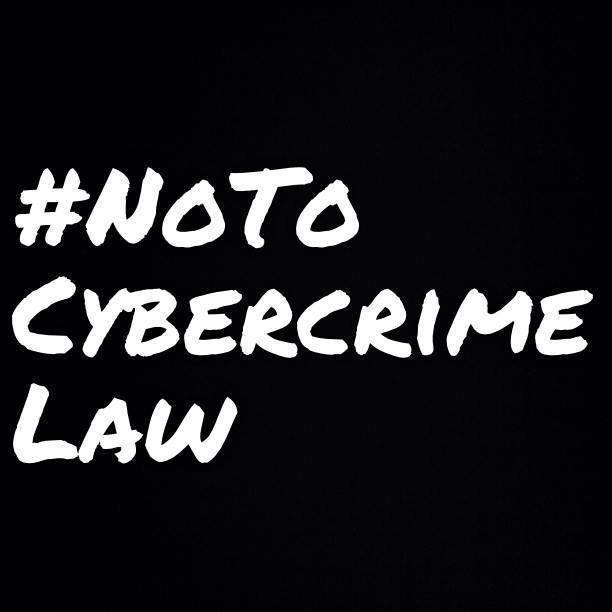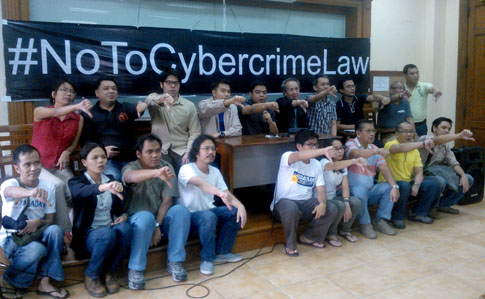Online libel: A tool of repression ready for use
Statement of PinoyMedia Center on the Supreme Court ruling on the Cybercrime Prevention Act With the decision to uphold the Cybercrime Prevention Act and its provision on online libel as constitutional, the Supreme Court and the Aquino administration have dealt one of the most serious blows to press freedom and freedom of expression of the […]

 Statement of PinoyMedia Center on the Supreme Court ruling on the Cybercrime Prevention Act
Statement of PinoyMedia Center on the Supreme Court ruling on the Cybercrime Prevention Act
With the decision to uphold the Cybercrime Prevention Act and its provision on online libel as constitutional, the Supreme Court and the Aquino administration have dealt one of the most serious blows to press freedom and freedom of expression of the Filipino people.
As a media institution committed to fully democratizing the practice of journalism to include the voices of the most marginalized sectors of society, PinoyMedia Center is one with journalists and citizens who continue to oppose the Cybercrime Act. Online libel under the Cybercrime Act is but the latest addition to the ruling elite’s growing arsenal of tools with which to silence criticism and suppress dissent.
It must not be forgotten that repression has always been the intent of politicians who crafted and passed the law, and of the president who signed it in the most hasty and non-transparent manner. It must not be forgotten that Filipinos just woke up one day in the grip of this draconian law; and while due to our collective show of outrage and resistance the court struck down certain provisions that most brazenly assault our democratic rights (such as the power to take down websites, real-time collection of traffic data), the law remains as undemocratic as the institutions that made it.
More than any other provision in the Cybercrime Act, it is online libel that actually defines the law. The decision to uphold libel as a criminal offense, and to provide even stricter penalties for online libel (from a minimum of six months imprisonment under the Revised Penal Code, to a minimum of six years under the Cybercrime Act) is more than enough reason to continue to oppose the said law.
Relative to traditional media, the new media has been a freer space for independent journalists and ordinary citizens. The threat of online libel now produces a “chilling effect” not only among journalists, but also among citizens who have as much as a right to report facts and express their views freely. It makes marginalized sectors who often take their advocacies to the internet even more vulnerable to harassment by those in power. Historically, libel has always been used to harass and intimidate journalists; now it can be used against anyone who chooses to share their knowledge or opinion online.
By criminalizing free speech and expression, the Cybercrime Act attempts to draw our attention away from the real criminals lurking among those in power. But it will never succeed in doing so. More must be done to oppose this law and criminal online libel as tools of repression now ready for use.
PinoyMedia Center is a non-profit media organization that is the publisher of Pinoy Weekly. It is part of the #NoToCybercrimeLaw Alliance, an alliance of journalists and citizens opposed to the said law in defense of press freedom and freedom of expression.



